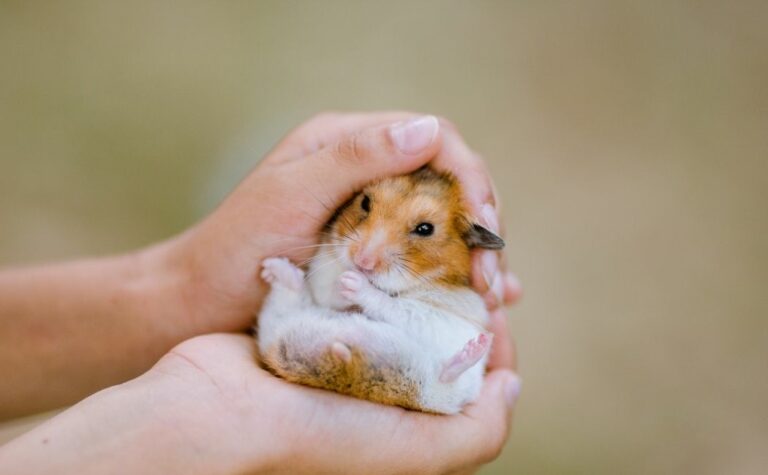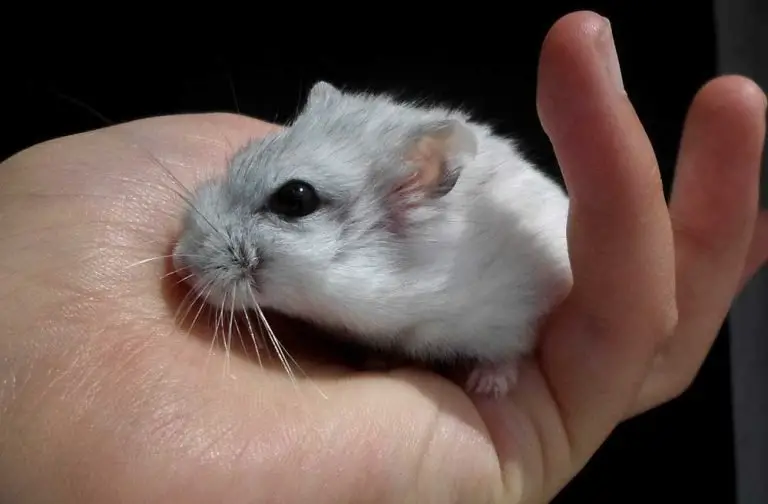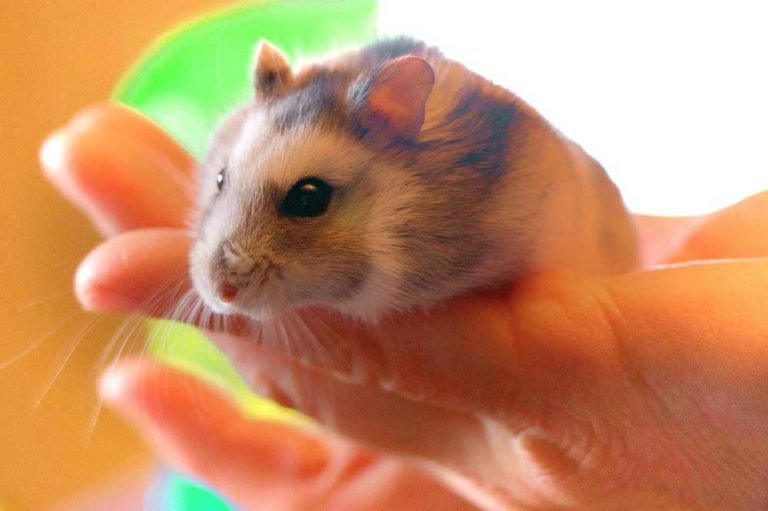Hamster Diabetes- Causes, Symptoms, Prevention & Treatment
If you’ve been keen to discover what hamsters can eat and what they can’t, then you might have noticed that the leading reason they need to avoid some foods is the risk of diabetes.
While small, the chances that your hammy will become diabetic in their life usually isn’t small. In fact, most vets and researchers will tell you that these little furry friends are among the most prone beings to the disease.
And what’s the science behind that? What causes diabetes in hamsters? How can you know that your hamster is diabetic? Is there a way you can prevent diabetes? How about treatment? Well, you could be in for a long read, but here you’ll discover all that and more.
What Is Diabetes?
Diabetes, in the simplest of terms, is a disease that leaves the body unable to control its blood sugar levels. It happens when the pancreas can’t produce enough insulin to handle the glucose levels in the body.
Insulin is the hormone that is needed to remove sugar from the blood and into cells, where it can be used as energy. But when there isn’t enough insulin in the body to do its job, then the sugar stays in the blood- at least until the kidneys notice it. And when they do, they remove the sugar through urine.
There are two types of diabetes, which are, Type 1 diabetes and Type 2 diabetes.
Type 1 diabetes is when the pancreas cannot produce insulin, while Type 2 is when it does, but not enough to handle all the glucose in the blood- so both types cause the glucose levels in the body to rise.
Diabetes In Hamsters

Much more like with humans, diabetes in hamsters is caused by a lack of or inadequate insulin production. While in humans such a condition is often genetic, it’s usually not the case for hamsters.
Sure, the pet may have a genetic makeup that puts them at a higher risk of diabetes, but the fact remains that hamsters can’t be diabetic at their point of birth.
It’s the lifestyle they live that will either cultivate diabetes or prevent it. And this is exactly why even if you buy a hamster from a breeder, there’s no guarantee that they won’t get diabetes later on in life.
It just means that the chances of them getting diabetes are slim enough that they didn’t develop any symptoms by the time you bought them. You could compare it to buying a lottery ticket- the chances of you winning it are slim, but still there.
Out of every 10 hamsters that develop diabetes, 8 of them will develop it because the pet was poorly taken care of. That’s according to research done in 2013 by Wistar Institute in Philadelphia.
Causes of Diabetes In Hamsters
To know the causes of diabetes in hamsters, we must first remember that these little guys can’t be diabetic at their birth. So, what could make them develop the condition? Well, here are the five common causes of diabetes in hamsters.
Poor diet:
Poor diet is by far the leading cause of diabetes in these little furry friends. A poor diet is what causes them to get fat, and it also makes their pancreas lose its ability to produce insulin.
This happens when the pet eats too much sugar and carbs– which is why you should make sure they don’t have access to foods that contain a lot of sugar. If you must give them sugary treats, give them very small amounts and not often.
Age:
As your hamster continues to age, the pancreas will get worn out. Apparently, a worn-out organ will have a hard time producing hormones and will more often produce less than the required amount if at all it does.
This isn’t a direct cause of diabetes, but it is something that will make the chances of your hamster getting diabetes much higher.
Obesity:

Being overweight or obese has the same effect on hamsters as it does to humans- their pancreas gets exhausted after having to produce so much insulin, and eventually, it just gives up.
Again, this is closely related to the hamster diet. Just be sure to give them a well-balanced and nutritious diet. Also, be keen to regulate the quantity of food you give them.
Illness:
Just like in humans, diabetes in hamsters can emanate from other chronic or even acute illnesses. Conditions like pancreatitis, for instance, can cause the pancreas to stop producing insulin.
Some illnesses will affect the body’s ability to utilize the insulin that is being produced.
For instance, respiratory illnesses can cause the hamster’s immune system to go into an overdrive, which in turn could make it produce too much cortisol. Cortisol is a hormone that normally stimulates glucose production– sugar being what diabetics are trying to avoid getting into their bodies.
Toxins:
It may not carry the same amount of weight as other causes, but toxins can also cause diabetes in hamsters. This is mostly due to the fact that toxins can damage both the insulin-producing cells and their membranes.
This may not necessarily lead to an inability of the pancreas to produce insulin, but it will definitely hinder its performance. And with that said, always keep your pet away from harmful toxins.
Symptoms of Hamster Diabetes
Being mammals, there are a lot of similarities in the way we and our furry friends show their symptoms. Here are some of the most common symptoms that will help you know if one of your hamsters is diabetic:
Increased thirst
If you have a diabetic hamster, you will quickly notice that they drink a lot of water. That happens mostly because the sugar in their blood is drawing a lot of water from the kidneys.
Increased hunger
Just like with increased thirst, your hamster will also start eating more than usual. This will be accompanied by weight loss, which happens to be another sign of diabetes.
Unexplained weight loss
Though diabetic hamsters eat much, that won’t more often lead to increased weight. Keep in mind diabetic hamsters burn a lot of fat and muscle instead of glucose to generate energy, and that leads to weight loss.
Increased Urination
As the hamster’s sugar level rises, their kidneys are forced to work harder to eliminate glucose through their urine. And that leads to more frequent urination.
Weakness and lethargy
Any diabetic hamster will most likely suffer from weakness and lethargy. Weakness makes them less active, whereas the lack of energy leads to even low activity levels.
Yellow nails
A lot of diabetics have discolored nails, more specifically yellow nails. Yellowing in nails is attributed to the breakdown of glucose and its effect on the nails’ collagen. However, yellow nails don’t always imply diabetes so it’s best to also check out for other symptoms.
Diabetes Prevention In Hamsters
Although hamsters are prone to diabetes, the good thing is that there are a lot of things you can do to reduce their risk. Here’s what you can do:
Find a trustworthy breeder
As much as no hamster is born diabetic, some that are closely related to diabetics may come pre-programmed with a predisposition for diabetes. So, make sure that you get your hamster from a trusted breeder who knows the history of their breeding line.
Cut on sugary foods

Diabetics are advised to not eat too much sugar. So, you should always provide your pet with healthy treats that won’t lead to an increased blood glucose level. Some of the healthy treats include broccoli, cucumbers, spinach, celery, zucchini, and more.
Keep your pet off toxins
As previously noted, toxins can damage cells and prevent them from carrying out their functions properly. So, make sure to keep your pet away from dangerous chemicals and medications as well as plants that are known for being toxic.
Get regular checkups
Regularly bring your pet to a veterinarian if they haven’t gone for a checkup yet. That way, the veterinarian will be able to detect diabetes at first stages and properly treat them should they have diabetes. And of course, try to avoid buying sick hamsters form pet stores.
Diabetes Treatment In Hamsters
Once you know that your hamster has diabetes, ensure that you talk with your vet about a proper treatment plan. Treatment options will vary based on the severity of the condition.
Dietary changes
Once it has been determined that your pet has diabetes, your vet will advise you to give them a special food designed for diabetic pets. That will usually be the first treatment option unless the condition is very severe.
Oral Medication
When dietary modifications don’t work, oral medication may be a second option for treating your pet. The vet may prescribe oral medicines such as glipizide or metformin to regulate the body’s glucose production.
Where the above medications don’t work, the vet may change the medication to see if the new one works for your pet.
Insulin injections
If the changes in diet and medication don’t bring about good results, then you will be asked to give your pet an injection of insulin every now and again. Your veterinarian can show you how to do it so that you can continue giving them their injections at home.
Dietary supplements
In some extreme cases, such as when your hamster has cancer and diabetes as well, they might need to take dietary supplements along with insulin injections.
The good thing about dietary supplements is that you won’t have to give them the supplement every time; you can simply mix it into their food and they will be all good.
The vet will do frequent blood glucose monitoring to measure how well your hamster’s diabetes is being controlled through medication and diet changes. Regularly measuring the blood glucose level will allow your vet to make adjustments where necessary.
In Conclusion
While they may be prone to diabetes, you can take measures to prevent your hamster from getting diabetes. You also have to keep a close eye on your pet for any early signs of diabetes.
And when you do notice any symptoms of diabetes in your pet, don’t delay in taking them to a vet for their treatment. Diabetes isn’t curable (yet) but it can be managed and your pet can still enjoy a happy life.







